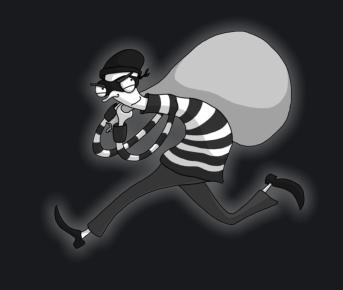Theft and fraud
No matter which wallet you have chosen, please note:
Bitcoins
are
only
secure
if
the
private
key
is
firstly
securely
generated
and
secondly,
remains
a
secret! But above all - and most importantly - that it is under OWN control!
Here
are
two
examples
of
users
who
have
been
ripped
off
by
putting
Bitcoins
in
the
hands
of
third parties:
•
The Bitfinex hack that saw users lose over $72 million
•
The failure of Mt Gox, in which users lost $450 million
To prevent theft, fraud and other loss, be sure to follow these rules:
1
.
Generate
your
private
key
in
a
secure
offline
environment.
(Unless
you
are
using
small
amounts,
where
in
such
cases
keys
can
be
generated in a hot wallet).
2
.
Be
sure
to
create
backups
of
your
private
keys.
This
helps
to
protect
against
loss
of
bitcoins
due
to
hard
drive
failure,
other
problems
or accidents. Ideally, also keep a duplicate set of backups off-site to be immune to fire, robbery or other mishaps.
3
.
For
added
security,
be
sure
to
encrypt
your
wallets.
While
this
will
not
help
prevent
theft
of
your
device
or
hardware
wallet,
the
keys
on it cannot be stolen.
Securing Bitcoins or other cryptocurrencies is the most important step for any user.
With
cryptocurrencies,
every
user
has
the
privilege
-
but
also
the
responsibility
-
to
safeguard
their
own
money.
Unfortunately,
there
are
countless
scams
involving
Bitcoin
and
other
cryptocurrencies
that
could
have
been
prevented
if
the
victims
had
not
entrusted
their
Bitcoins to other people.



Wallets

Theft and fraud
Regardless
of
which
wallet
you
have
chosen,
please
note
the
following
please
note:
Bitcoins
are
only
secure
if
the
private
key
is
firstly
securely
generated
and
secondly,
remains
a
secret!
But
above
all
-
and
most
importantly
-
that
it
is
under OWN control!
Here
are
two
examples
of
users
who
have
been
ripped
off
by
putting
Bitcoins
in
the
hands
of
third parties:
•
The
Bitfinex
hack
that
saw
users
lose
over $72 million
•
The
failure
of
Mt
Gox,
in
which
users
lost
$450 million
To
prevent
theft,
fraud
and
other
loss,
be
sure to follow these rules:
1
.
Generate
your
private
key
in
a
secure
offline
environment.
(Unless
you
are
using
small
amounts,
where
in
such
cases
keys
can be generated in a hot wallet).
2
.
Be
sure
to
create
backups
of
your
private
keys.
This
helps
to
protect
against
loss
of
bitcoins
due
to
hard
drive
failure,
other
problems
or
accidents.
Ideally,
also
keep
a
duplicate
set
of
backups
off-site
to
be
immune to fire, robbery or other mishaps.
3
.
For
added
security,
be
sure
to
encrypt
your
wallets.
While
this
will
not
help
prevent
theft
of
your
device
or
hardware
wallet,
the keys on it cannot be stolen.
Securing
Bitcoins
or
other
cryptocurrencies
is the most important step for any user.
With
cryptocurrencies,
every
user
has
the
privilege
-
but
also
the
responsibility
-
to
safeguard
their
own
money.
Unfortunately,
there
are
countless
scams
involving
Bitcoin
and
other
cryptocurrencies
that
could
have
been
prevented
if
the
victims
had
not
entrusted
their
Bitcoins to other people.

Wallet



















